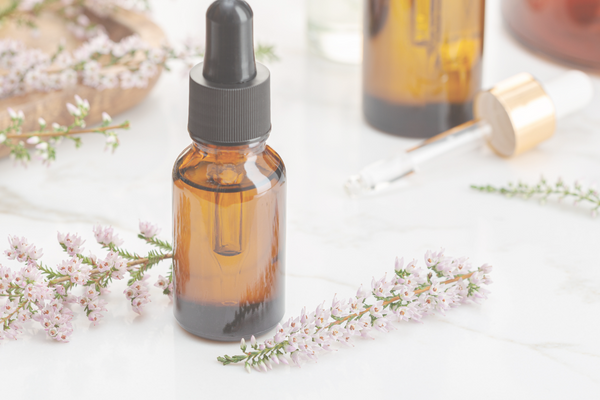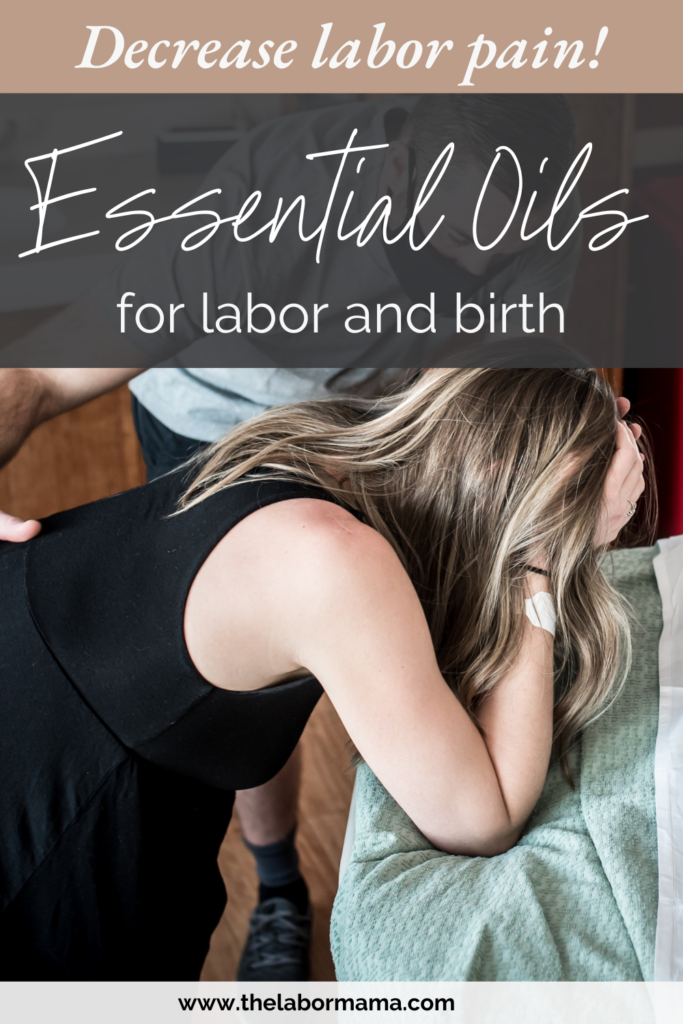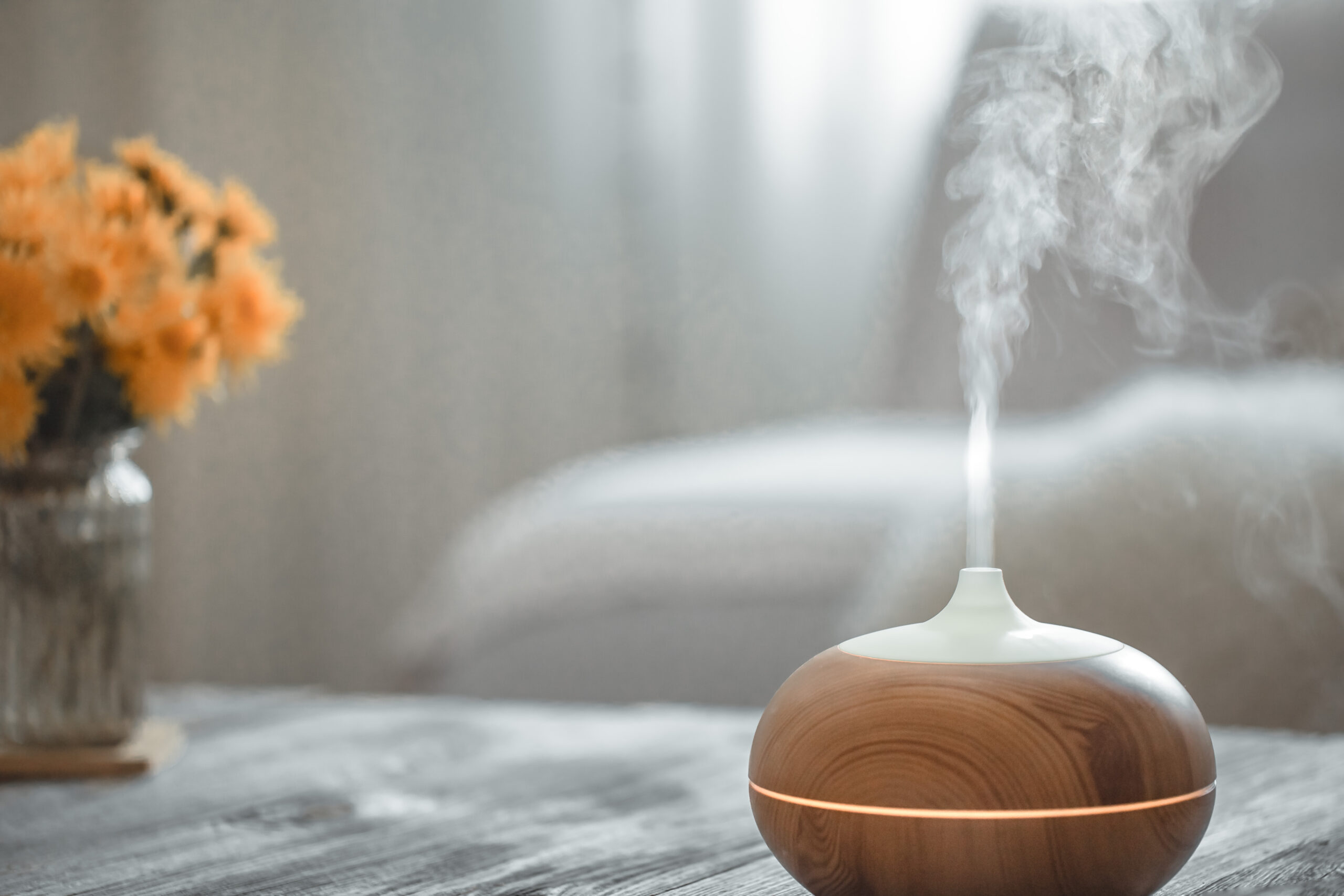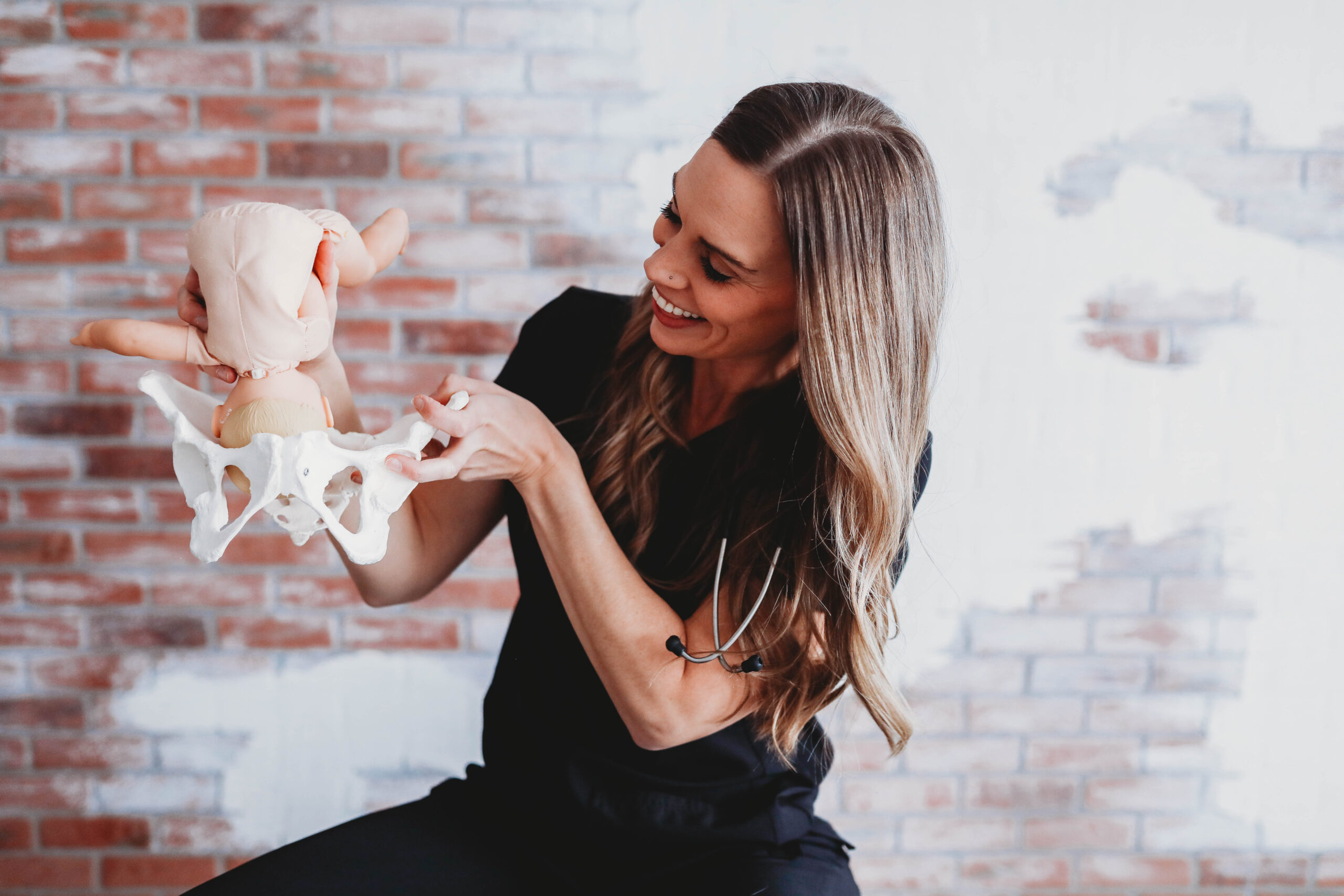Are you interested in the way essential oils for labor and birth can change your birth experience? You aren’t alone! Essential oils for labor can play a really big (and beautiful) role in setting up an environment that you feel safe in – and that environment can be crucial to labor progress!
As you think about what type of space you’d like to labor in, I’d encourage you to consider using some essential oils for labor and delivery. The right aromatherapy during labor can transform a sterile or impersonal space into one that feels like your home, brings your calm or peace, and even decreases your labor pain and anxiety.

What are essential oils and aromatherapy?
The terms essential oils for labor and aromatherapy for labor are often used interchangeably. You may also have learned about the use of essential oils and pregnancy. The use of aromatherapy for labor is a bit newer, but research continues to show benefits and the practice will likely continue to grow in popularity.
Aromatherapy is a traditional practice of using the essential oils from plants to enhance your well-being. It falls into the category of “complementary medicine” – which means the use of oils can often be done alongside other types of medicine or care. The oils are usually mixed with something called a carrier oil. Your aromatherapy can be “done” in three ways: oils applied directly to the skin, diffused into the air, or added to a bathtub. You may hear about ingesting them as well, but this is not recommended at all.
If you are interested in using aromatherapy in labor, talk with your care provider at a prenatal appointment. Most facilities let you, and they may actually stock some oils for your use! We stocked lavender, citrus, peppermint, rose, and eucalyptus for our patients.
Aromatherapy during labor is most often done via diffusion. I’d recommend bringing a small, simple diffuser that runs on a charge and/or can be plugged in. If you don’t want to pack another thing in your hospital bag, you can also just put small amounts of oil on cotton balls and then place those around the room.
How do essential oils for labor work?
Interestingly, no one really knows how aromatherapy for labor works! Though research shows relationship between the use of essential oils for labor and delivery and lower pain levels, we aren’t totally sure why!
One possible idea – hang with me, it’s a little sciencey – is that aromatherapy hits your body at the limbic system. This part of the body is all tangled up in your emotions and memories. The thought is that essential oils for labor may stimulate that part of the brain – and then you feel less tension and/or anxiety!
When you feel less tension in labor, you interrupt something called the Fear-Tension-Pain cycle. This is a GOOD thing, because it leads to you perceiving less pain in your labor and birth! It can also lead to “easier” and shorter labor stages, a benefit to both you and baby.

Another possibility is that essential oils for labor decrease cortisol (a stress hormone) levels in your body or increase serotonin (a feel good hormone) levels in your body. This means your body has more freedom to use its own natural hormonal responses to manage pain.
What essential oils for labor are popular?
There are a lot of different essential oils for labor and delivery. You may actually want to try out a few different essential oils while pregnant. This can help you learn what you do and don’t like (and then just know that in labor you may totally change your mind and that’s okay)!

Commonly recommended essential oils for labor
- Lavender: This essential oil is often stock on labor units. It is very relaxing and calming and is often used as part of massage to help release any muscle tension.
- Jasmine: This oil is believed to act upon on the uterus, possibly stimulating it and causing or strengthening contractions.
- Clary Sage: Like Jasmine, clary sage is also though to act on the uterus and impact contractions. It’s also been used traditionally to help with period pain or symptoms of menopause. Some also suggest that it can help with emotional issues or stressors – helpful in labor and birth, of course!
- Peppermint: This oil is loved for its possible assistance in pain relief. But, do you want to know my favorite use for it? Helping with the first pee after birth! You can add a few drops of this oil to the toilet bowl if you’re having issues peeing after birth.
- Citrus blossom: Citrus is known for its ability to reduce anxiety levels. Research has shown that the use of citrus can reduce anxiety in both the early phase and the active phase of labor.
- Orange: Like citrus blossom, orange scent has also been shown to help lower anxiety levels in labor.
- Geranium: Through simple diffusion and inhalation, geranium has been shown to be another non-invasive, cheap way to decrease labor anxiety (and blood pressure).
You can consider “birth blends” too. These blends are carrier oils combined with different mixes (a specific number of drops) of a few different oils. Mama Natural offers an extensive resource about more of this here. And again, don’t forget to consider some sort of diffuser for your different scents or blends.
Can you use essential oils for labor induction?
You may have heard about the use of essential oils to induce labor. While there is no evidence to show that oils can actually cause labor to start, you still need to get the okay from your provider on what oils you can use, how to use them, and when you can start using them.
What about clary sage to induce labor?
Clary sage for labor induction definitely gets talked about the most! Some believe that both clary sage and jasmine can encourage stimulation of the uterus. The stimulation could then cause contractions or increase the strength of any existing contractions. This possible benefit definitely makes clary sage one of the more popular essential oils for labor – and most providers will not recommend its use before 40 weeks of pregnancy or until labor has begun.
The takeaway about aromatherapy during labor
There are many safe essential oils for labor. And there are also some essential oils for labor induction or postpartum that may prove beneficial to you too. Research is clear that simple diffusion and smelling of oils can have great impacts on your experiences!
Here’s your last reminder to ask your provider what your birthing facility allows for (or keeps on the unit). You can also ask when they feel comfortable with you beginning to use any oils. And then don’t forget that oils will no be allowed in the operating room if you are meeting your baby via cesarean birth!





